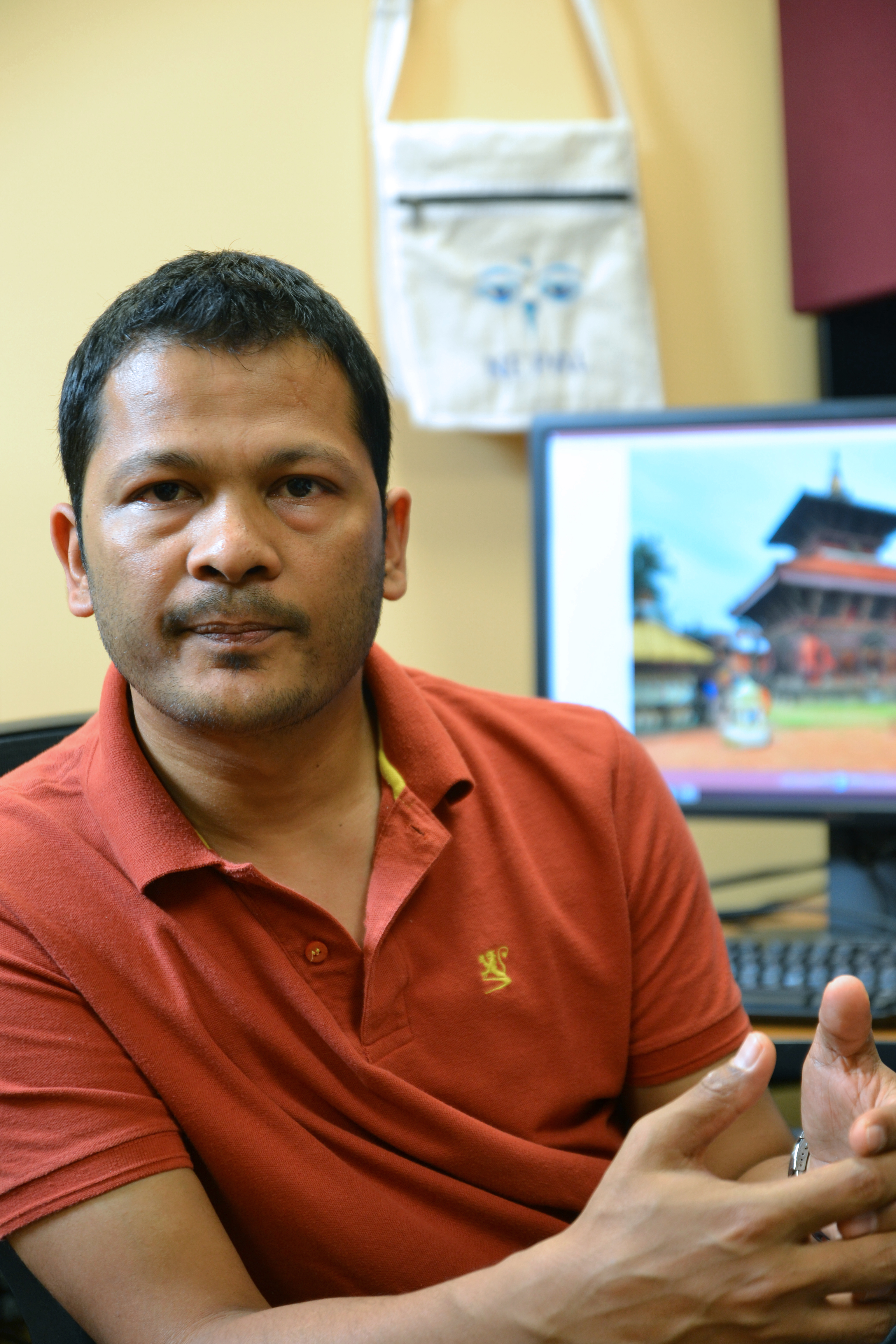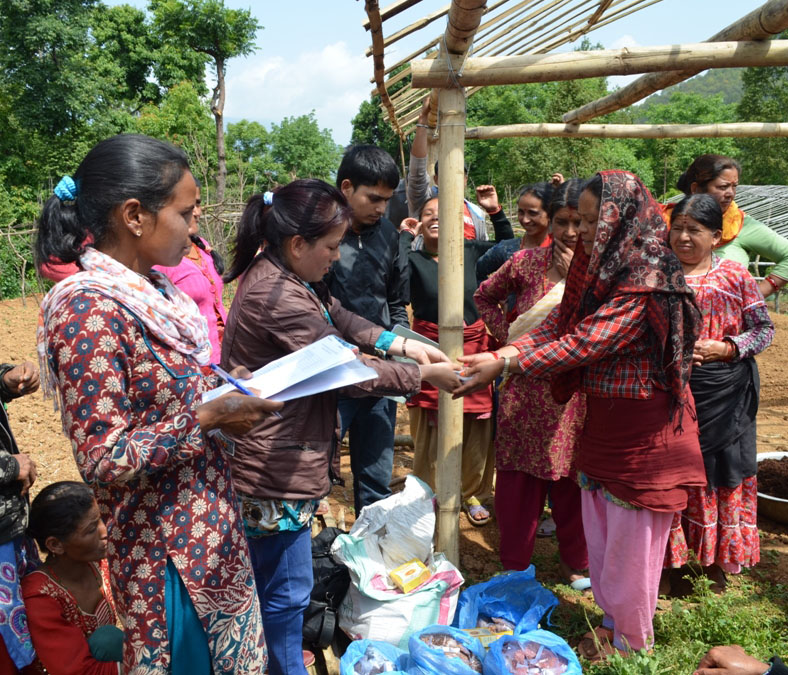Student whose village in Nepal was destroyed by earthquake raises money to rebuild

Virginia Tech doctoral student Sanam Aksha – who has spent the past several years studying how governments can better prepare for disasters – learned in late April that an earthquake had leveled his hometown of Tupche in central Nepal.
Aksha, who's studying risk and environmental hazards in the College of Natural Resources and Environment, learned of the magnitude-7.8 earthquake on April 25 from Facebook and Twitter. Several hours later, a friend called "to warn me that many aftershocks were coming, which had the village in a panic," he said.
Aksha's village of 1,200 people, about an hour's drive from Kathmandu, was devastated, with homes, the high school, the office of village development, and a public health center all destroyed.
In response to the disaster, Aksha, the president of the Nepalese Student Association at Virginia Tech, led a fundraising drive that resulted in $5,000 being donated to relief efforts. The group of about 150 students asked for donations in booths on campus and during an annual, internationally themed event called the Color War held each year by students. This year's Color War, held May 2, devoted half of the proceeds to Hokies for Nepal.
In the short term, the money is providing temporary housing materials in Tupche, with long-term fundraising aiming to rebuild the high school, Aksha said.
Outreach and International Affairs commits funds
In addition to the money raised by Hokies for Nepal, an additional $30,000 has been earmarked to support Virginia Tech student organizations, research projects, and faculty initiatives aiding reconstruction efforts, said Guru Ghosh, vice president for Outreach and International Affairs. The Virginia Tech Language and Culture Institute, part of Outreach and International Affairs, is contributing half of the $30,000. Two of the 10 Hubert H. Humphrey Fellows currently attending the institute now through August are from Nepal.
"We recognize the overwhelming needs of the Nepalis as millions of people face challenges of finding food and shelter and creating sanitary living conditions," Ghosh said. "We would also like to help support the efforts of members of the university community who are helping to rebuild the country."
Projects eligible for a grant must be from a student, researcher, or faculty member from an academic department at Virginia Tech or a registered student organization. For more information about eligibility and on how to apply, contact Ian Leuschner, director of International Support Services, at 540-231-3736. A call for proposals outlining specific criteria will be released by Sept. 1, Leuschner said.
Post-graduation plans include return to Nepal
Aksha, whose immediate family is safe in Kathmandu, says it will probably take at least 10 years for his village to get back to normal. He plans to finish his Ph.D. program at Virginia Tech in 2018 and return to Nepal, possibly to teach at the university level or to work for a development or research organization.
He wants to break the typical pattern of urgent, one-time responses that he said is all consuming when a major event takes a country by surprise. His studies have shown him that policymakers can better deal with such emergencies through more sophisticated planning.
"Disaster is inevitable," he said. "What we can do is reduce the risk by taking some proactive approaches like making policies – making communities more resilient."
Written by Hannah Samlall, a senior from Warrenton, Virginia, majoring in communications in the College of Liberal Arts and Human Sciences. Keith Pierce contributed to this report.





